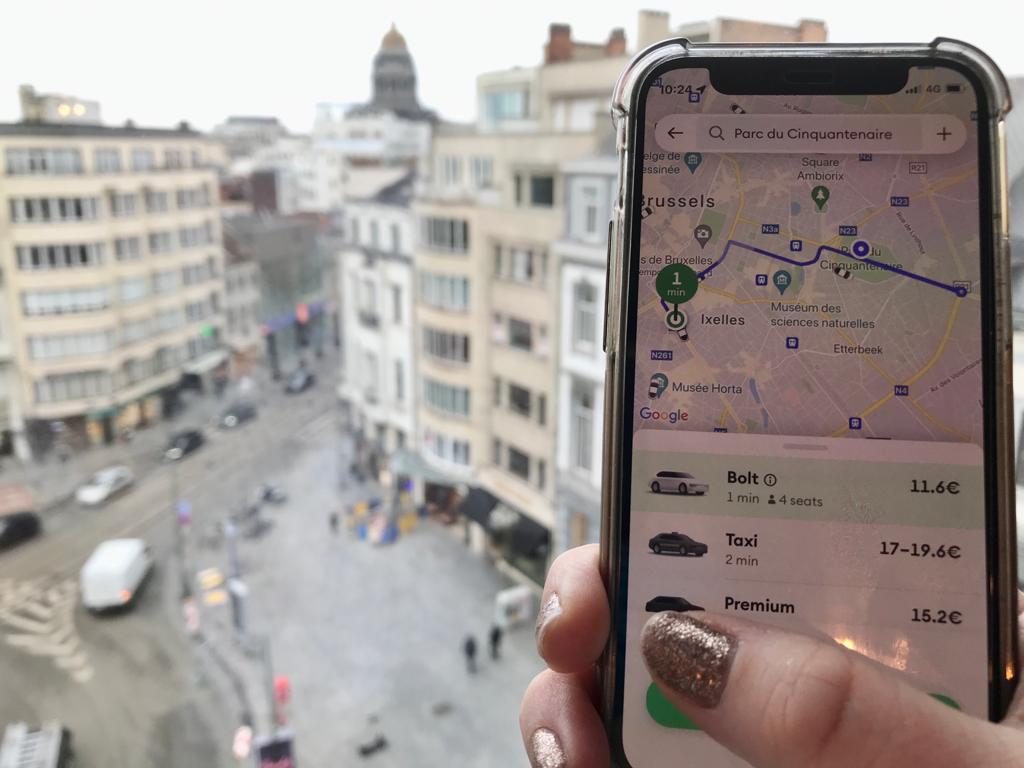After years of tension between Brussels’ traditional taxi sector and ride-hailing apps like Uber, the Brussels Parliament is reviewing the long-awaited Taxi Plan meant to ensure that both can operate fairly in the Belgian capital.
The Taxi Plan – which was supposed to have been delivered last summer – involves measures that update a 1995 ordinance previously used to ban Uber from operating in Brussels.
“The drivers have been living in uncertainty for far too long and for that reason alone it is good that there is finally a new legal text,” said Els Rochette (one.brussels) in a statement.
“We have tried to balance the interests of the taxi drivers and the drivers who pick up their customers on the basis of an application. For us, the service to the people of Brussels is paramount. There is a huge demand for paid passenger transport in Brussels – much more than the traditional taxi sector can meet.”
An end to legal uncertainty
Presented by Brussels Minister-President Vervoort, the new rules create a legal framework for drivers who operate under gig-platforms like Uber, Heetch and, more recently, Bolt.
These drivers have been at odds with traditional taxis because they aren’t required to conform to the same strict professional standards despite fulfilling the same function, often at cheaper rates that undermine the existing, more-strictly regulated sector.
In the previous legislature, then-Minister of Mobility Pascal Smet (one.brussels) made a proposal to modernise the sector's regulations, but the dossier ended in a deadlock.
After the ban on Uber was met with protests, emergency legislation was rolled out to allow some drivers to resume working in the capital, but its implementation was inconsistent and resulted in many drivers having their cars impounded.
Give the people what they want
Uber drivers weren’t the only ones to protest the ban – many Brussels residents rely on apps like theirs or Heetch to get around the capital as it becomes increasingly (and intentionally) more difficult to own a private vehicle.
Rochette explained that many residents prefer the ride-hailing apps over traditional cabs, despite the social implications that come with the precarious working conditions they impose on their drivers.
“In the past month alone, I have had several negative experiences when taking a taxi. Paying by card did not work. When I spoke in English in the back, a diversion was chosen because the driver thought we were tourists,” said Rochette. “These are experiences you don't have when ordering a ride through an app.”
Related News
- Uber driver allegedly attacks Brussels Mobility Controller at Midi Station
- Unfair competition: Brussels moves to level taxi playing field with Uber
- Taxi plan: Ride-sharing drivers protest across Brussels
She and other women especially have cited the safety features of ride-hailing apps as a reason for preferring them over traditional taxis, but they have recently become more expensive.
Rochette suspects that this is due to a shortage of drivers tied to uncertainty about the legality of operating in the capital, and hopes the new legislation will change this.
Many details of the ordinance, such as a cap on the number of ride-hailing drivers and the tests that drivers must pass to get a licence, will be laid out by the Government in an executive order at a later date.
“For us, it is essential that all Brussels drivers can continue their job. We are against having too low a number of licences or a test that makes it unnecessarily difficult for them to obtain a licence,” Rochette said.
“Transport needs demand both traditional taxis and new players where drivers pick up customers. We are now creating a clear legal framework for this.”

